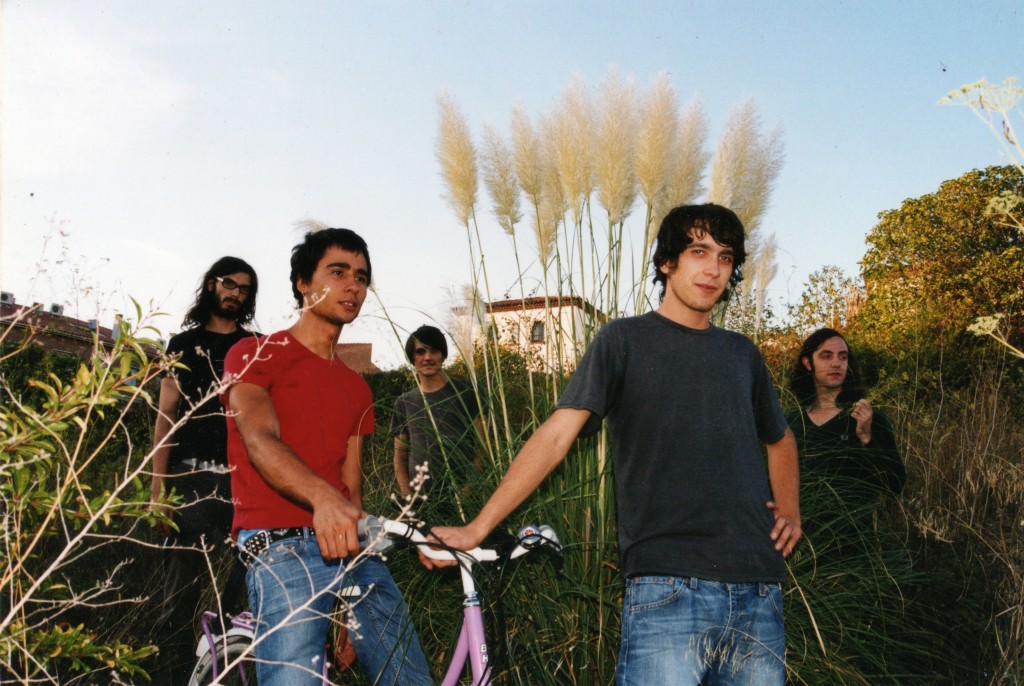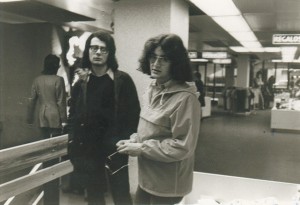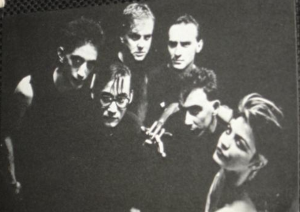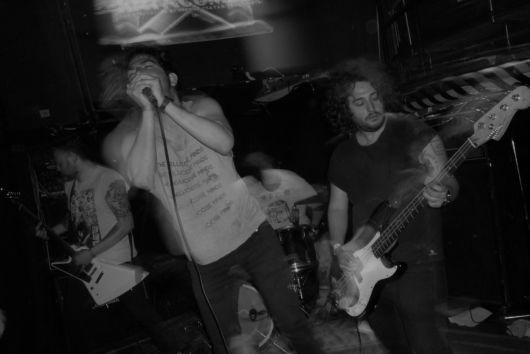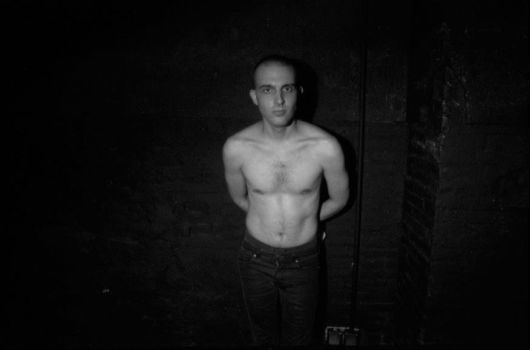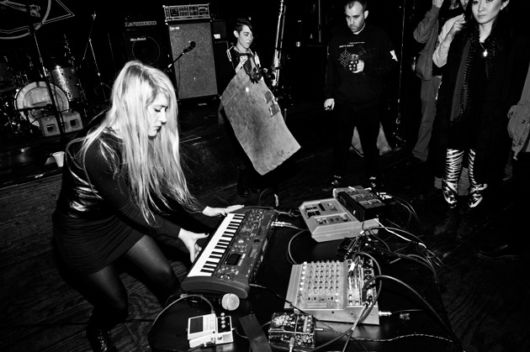For years we have accepted it with total normality, as if it were intrinsic to them, but it is not, nor is it habitual, or common, or anything remotely like that. Perhaps because we had never paused to analyse it. It was so evident that we were looking at extremely talented people, that we never considered it. But at the time we couldn’t see it, perhaps some intuited it, but we doubt that anyone would dare to put their hand up and admit, heatedly, that they knew what would happen later.
We are at the start of this century and the venue might be a gaztetxe in Pamplona, or a piece of land in La Roca, or the Sant Feliu Fest, it doesn’t matter. Five twenty-year olds on the stage. T-shirts featuring Swedish hardcore bands, and low-slung trousers, incredibly low-slung trousers. Some tattered Vans and everything sounds out of synch, a disastrous racket. Their lyrics talk about our lot, it is the moment and the era, there is no alternative but to bring out all their adolescent fury in those songs. That’s their way. Ours is standing below, with a raised fist and a sweaty body while we sing them all: “Every song I play, every word I say, everything I do, all my acts are just for you”. The notes of “Galactic” and the five lads that destroy it live are called Zeidun, like the dog of their mate in Sant Celoni. And they are the best group in the world, even though they don’t seem to be, even though it would take us years to know that they are.
But time has shown that yes, they were the best. That behind that band that didn’t stand out, that lived in the most extreme anti-pretentiousness, there were, precisely, brutally inspirational people. How can one define, if not, Dalmau Boada? Restless, experimental, ingenious and good, stunningly good. “Mau” has made “cult” groups like someone going out to buy a loaf of bread. But in the year 2000, when recording Oceane with Zeidun, we probably wouldn’t have given a cent for the drummer of that group of kids from the Montseny. Well we should have, because that lad who looked like he’d just come out of the jungle went on to form Omega V, and later Les Aus, and after that Esperit! And these are bands that have changed the game rules of the music scene in Catalonia. Or Joan Colomo, who formed, together with Mau, La Célula Durmiente. Have you ever known a band that was bigger fun? I haven’t. You would see Colomo fall off the stage with Zeidun because of the amount of beers in his blood, but later they ended up recruiting him to form part of The Unfinished Sympathy, probably the most outstanding indy-rock band that has ever existed in this country. And while the years passed, he made songs, songs that one day came to light in solo, and it turned out that they so good that he gets calls from all over the place and everyone knows who he is. But hadn’t we agreed that he was just the vocalist with four notes and long hair heading up Zeidun? Even my mom knows who Colomo is.
Xavi, the bass guitarist, has been less active, during the last decade “all” he has done has been to form part of a group called Els Surfing Sirles, that’s “all”. Els Surfing Sirles were the best, but you already know that. Candid, the two-meter giant who played keyboard, has formed so many bands that they can’t be written on three pages. This is not an opinion, it is not conditional, it is real information, because we’ve seen it with our own eyes. Now he can be seen playing with Murnau B and Autodestrucció, but recently he was the headline drummer with Joan Pons of El Petit de Cal Eril. Albert Trabal played guitar and trumpet with Zeidun, and also did so in a pile of bands such as Rain Still Falling and, later, with L’Orquestra de Sant Celoni.
Probably when they all played together, they never showed us their real potential. Excuse the expression, but that band was just the tip. Sufficient for us to look back now and, finally, start to defend their previous and subsequent work and, above all, their work as Zeidun. An emo-core band full of exciting and fantastic moments. Here and now, it’s the right time to thank them for everything they’ve given us with their multiple names, with all their faces. This is the feedback that they never received and, undoubtedly, they deserve, for so many great nights and great days rounded off by their songs.
On 15 May 2014 Gentnormal and La Fonoteca Barcelona have programmed It’s killing me but I like it: A genealogy of Zeidun for the third session of #BCNmp7. The session will consist of performances by Zeidun and by many of these bands: Joan Colomo – who has just released a new disc, Els Surfing Sirles – revived for the occasion, Esperit!, La Célula Durmiente, Autodestrucció, L’orquestra de Sant Celoni, Murnau B and Omega V). In addition, there will be screenings of small documentary capsules about the musicians and free distribution of a fanzine and a CD that cover this “genealogy”. On Monday 12 May in the afternoon we will be giving out 5×2 free admission tickets via our Twitter account @CCCBmusica, all you need to do is answer a question.








